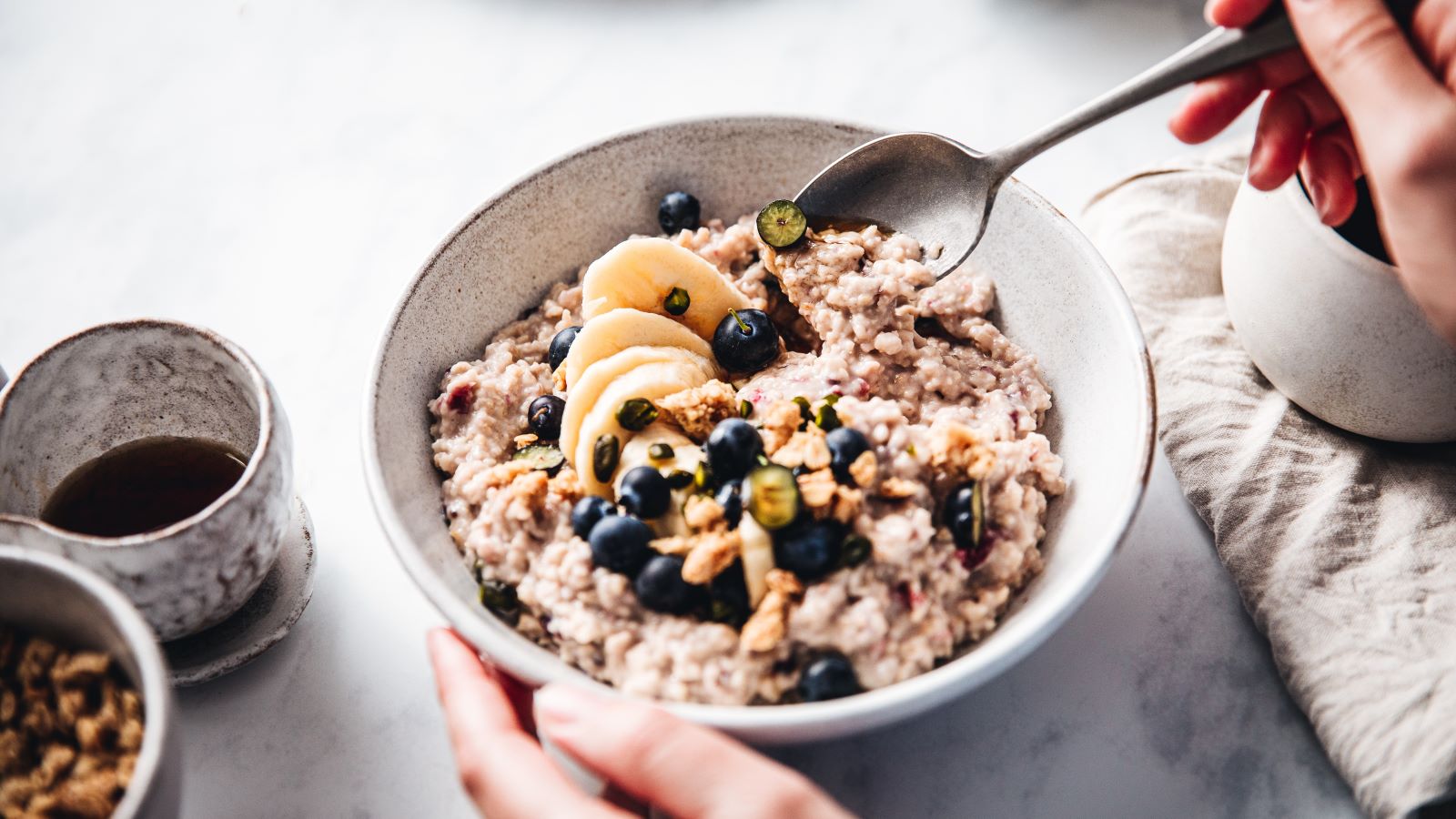Looking for a new breakfast staple to kickstart your day? Look no further than your friendly neighborhood bowl of oatmeal.
“There are so many great things about oats,” says Jamie Allers, MS, a registered dietician with Hartford HealthCare’s Digestive Health Institute. “Flexibility is at the top of the list. Depending on what you like, what you can afford, and what you have access to, oats are a healthy and delicious option.”
Here’s everything you need to know about this breakfast superfood.
Each type of oats has pros and cons.
Walk into any store, and you’ll see lots of oatmeal options. But don’t be intimidated.
“Other than cooking time and overall texture, all types of oats have comparable amounts of calories, carbs, protein, fiber, vitamins and minerals,” explains Allers. “There’s not necessarily one oatmeal that’s better than others, but there are slight differences.”
Three of most common types of oats are:
- Steel-cut oats are closest to the original unprocessed whole-grain form of oatmeal, called an oat groat. Some people may find that steel-cut oats keep you full for longer. Due to the minimal processing, steel-cut oats may also have less impact on your blood sugar.
- Rolled oats are flatter through processing, and some people like this texture more.
- Quick oats are the flattest (and most processed) oats – so they are quickest to prepare. Packaged quick oatmeal often has other ingredients, like added sugars, so peek at the label first.
Discuss your recommended oatmeal intake with your doctor if you have a fiber-restricted diet. And, if you’re gluten-free, find oats with the gluten-free certification.
> Related: 5 Healthy Breakfast Ideas for Busy Mornings
5 ways that oatmeal can improve your health.
Oatmeal is affordable, shelf-stable and easy to use in healthy meals or snacks – especially if you’re tight on time, says Allers. While there are many other reasons to eat more oatmeal, here are her top five benefits:
- Increase fiber intake that helps with bowel regularity, satiety and cholesterol levels.
- Manage blood glucose through soluble fiber beta-glucan.
- Unlock a new source of vitamins and minerals, including plant-based iron, magnesium, zinc and folate.
- Assist your gut health since fiber feeds our microbiome.
- Skip the missed breakfast with a quick and tasty option. If you don’t like hot breakfast cereal, try overnight oats. You can prep it beforehand and grab it on your way out the door.
> Related: 4 Ingredients That Can Supercharge Your Smoothie
Think oats are bland? Think again.
If you’ve written off oatmeal as bland and boring, here are a few creative takes on the food to get you started.
- Make sweet oatmeal without excess sugar. Added sugars and sweeteners like honey and maple syrup can turn your oatmeal into dessert. If you want to keep your sugar intake low, try this:
- Add some fruit (like berries or apples) for natural sweetness.
- Sprinkle in some spices (cinnamon, nutmeg or pumpkin spice) to add flavor.
- Use extracts like vanilla or hazelnut to make your oatmeal rich without the extra calories.
- Discover protein-packed oatmeal. Oatmeal can be a full, satisfying meal. To increase your protein, add nuts, seeds, peanut butter, chia seeds, flax seeds, yogurt or even some protein powder to your oats.
- Make oats your recipe superstar. Oats are way more than oatmeal. You can blend oats into smoothies or use them in non-traditional ways. Did you know ground oats are an excellent flour replacement and a unique binding agent? From Healthy Pumpkin Oatmeal Pancakes to meatloaf, unlock your creativity.
How to start your oatmeal adventure.
As with all nutritional changes, Allers advises us to consider the starting point. If you’re trying to adopt something new, think about what’s realistic. Whether you want to start eating breakfast or try out oatmeal, even once a week is a perfect next step.
And if you don’t like oatmeal, that’s okay!
“There’s many ways to increase fiber, stabilize blood glucose or improve cholesterol levels,” says Allers. “Nutrition recommendations always have a lot of flexibility, and you can individualize eating plans to help you meet your health goals.”



